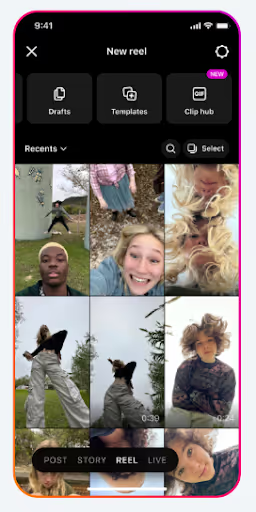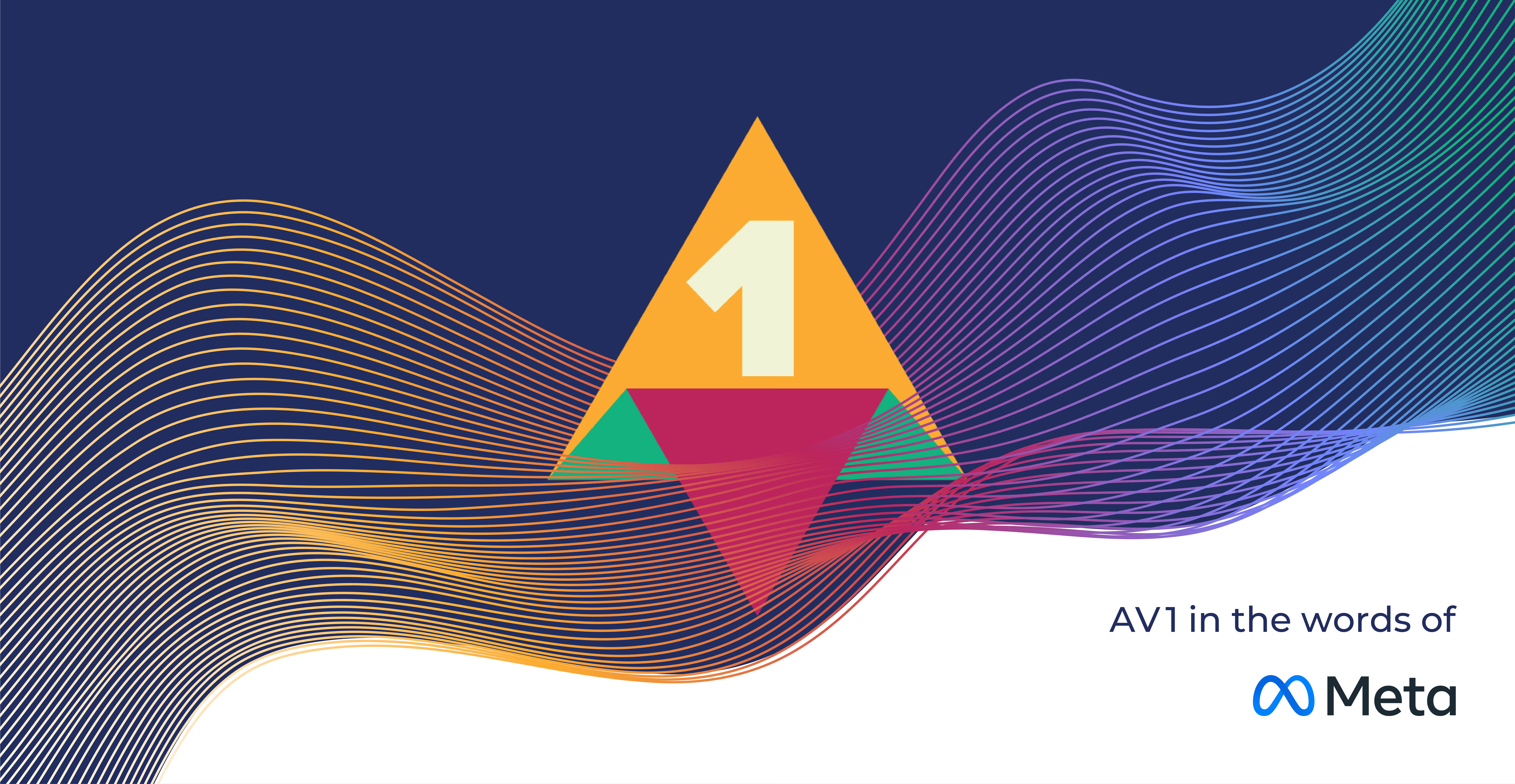Meta Backs AV1 for Better User Engagement Results
Meta’s AV1 adoption story extends across platforms like Facebook, Instagram, and Messenger. Enhancing high-quality, real-time video communication is essential for meeting consumer expectations for seamless, glitch-free performance.
Ioannis Katsavounidis, a research scientist and technical leader at Meta, plays a key role in advancing the company's video quality and encoding optimization, including its use of the AV1 codec. He spoke with us recently about Meta’s commitment to AV1.
A Lower-Bitrate Codec That Users Love
“Tests by Meta show that using AV1 reduces video bitrates by an average of 30% while maintaining the same quality, which is crucial for efficient data transmission — especially for live and real-time communication,” said Katsavounidis. “AV1's screen content coding tools are both unique and crucial for enhancing performance when sharing desktop content.”
The AV1 codec is not only more efficient but it has had a positive impact with users. Katsavounidis commented, “During testing, we’ve deployed AV1-encoded video to randomly selected groups of users. The feedback is significantly higher for AV1 versus other codecs.”
Energy Saving
AV1 stands out by delivering higher compression efficiency without requiring significantly more computational power, unlike other codecs that typically demand much higher compute and energy to achieve similar bitrate savings. This allows Meta to reduce bandwidth without a proportional increase in energy consumption, making AV1 an energy-efficient solution.
"Of course, being open source and available under AOM royalty-free license just seals the deal for us,” noted Katsavounidis. “If you put all this together, we think that AV1 has a unique value proposition."
Bringing Better Video to Low-end Devices
AV1 also enables Meta to deliver better quality video to low-end mobile devices using the dav1d software decoder, which allows efficient playback even on devices without hardware decoding capabilities.
"Thanks to Meta’s many years of work with the AOMedia and our own heavy investment in improving the performance of dav1d, low-end Android phones can now stream 720p video for up to a whopping 14 hours," emphasized Katsavounidis. "And now that Google has integrated dav1d into Android it no longer needs to be an additional download to be available in our apps."
This increase in the adoption of dav1d makes AV1 accessible across a wider range of devices, including those dominating the Android market now, and those projected to dominate in the future.
"Our North Star is to deliver AV1 to everybody on all devices, using a mix of hardware decoding and software decoding with dav1d," he added.
Benefits of AOMedia Membership
"Meta is one of the biggest champions when it comes to anything open source,” says Katsavounidis.
Meta has been involved in over 600 open projects, including actively used tools like PyTorch for AI research and the Open Compute project for data center design, in which Meta actively shares its innovations with the global community.
“We believe that AOMedia is the most straightforward way to offer the highest quality solutions for all modern media and images, audio, and video for the world," said Katsavounidis.
He doesn’t hesitate to recommend membership. "Every company that deals with media, whether it's images, audio, or video, should join AOMedia,” he said. “And you don’t have to be as large as Meta to benefit from joining, as companies can invest at any level that suits their budget and goals.”
Meta’s Go-to for video
As of early September 2023, 70% of Meta Reels by watch time on iOS were encoded with AV1.

“Now, the majority of all videos — not just Reels — watched on iPhone, and of course these higher-end Android devices, are AV1. And we are continuously rolling it out,” added Katsavounidis. “It's only a matter of time, I would say, before AV1 is in everything we do. The decision broadly at Meta is to really have AV1 as our go-to product for the future.”
